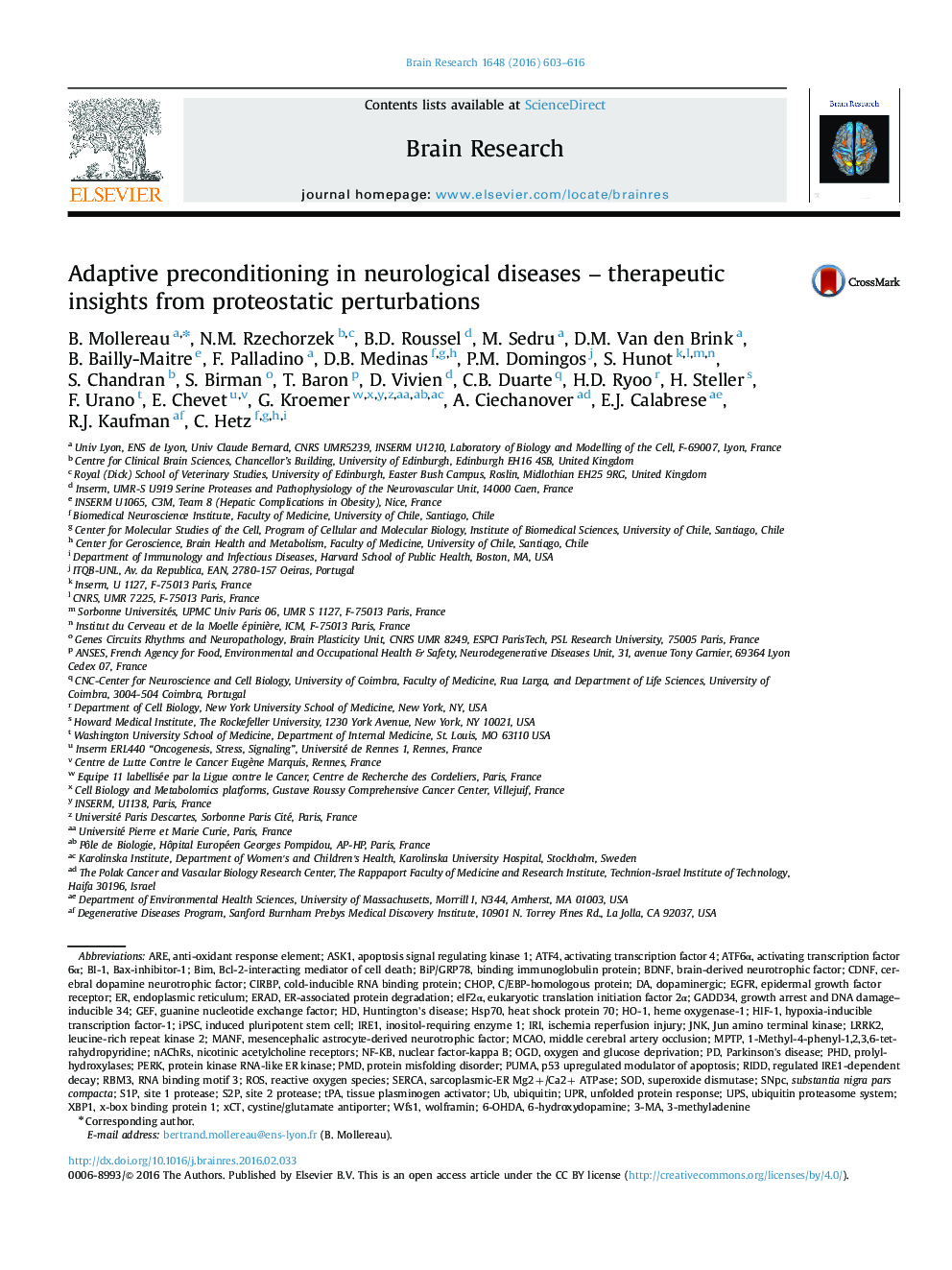| کد مقاله | کد نشریه | سال انتشار | مقاله انگلیسی | نسخه تمام متن |
|---|---|---|---|---|
| 6262291 | 1292347 | 2016 | 14 صفحه PDF | دانلود رایگان |

- The proteostasis network is perturbed in neurological diseases.
- UPR, UPS and autophagy are adaptive responses to maintain cell function.
- Adaptive responses induced by preconditioning could be used for therapeutics.
In neurological disorders, both acute and chronic neural stress can disrupt cellular proteostasis, resulting in the generation of pathological protein. However in most cases, neurons adapt to these proteostatic perturbations by activating a range of cellular protective and repair responses, thus maintaining cell function. These interconnected adaptive mechanisms comprise a 'proteostasis network' and include the unfolded protein response, the ubiquitin proteasome system and autophagy. Interestingly, several recent studies have shown that these adaptive responses can be stimulated by preconditioning treatments, which confer resistance to a subsequent toxic challenge - the phenomenon known as hormesis. In this review we discuss the impact of adaptive stress responses stimulated in diverse human neuropathologies including Parkinson׳s disease, Wolfram syndrome, brain ischemia, and brain cancer. Further, we examine how these responses and the molecular pathways they recruit might be exploited for therapeutic gain.This article is part of a Special Issue entitled SI:ER stress.
Journal: Brain Research - Volume 1648, Part B, 1 October 2016, Pages 603-616